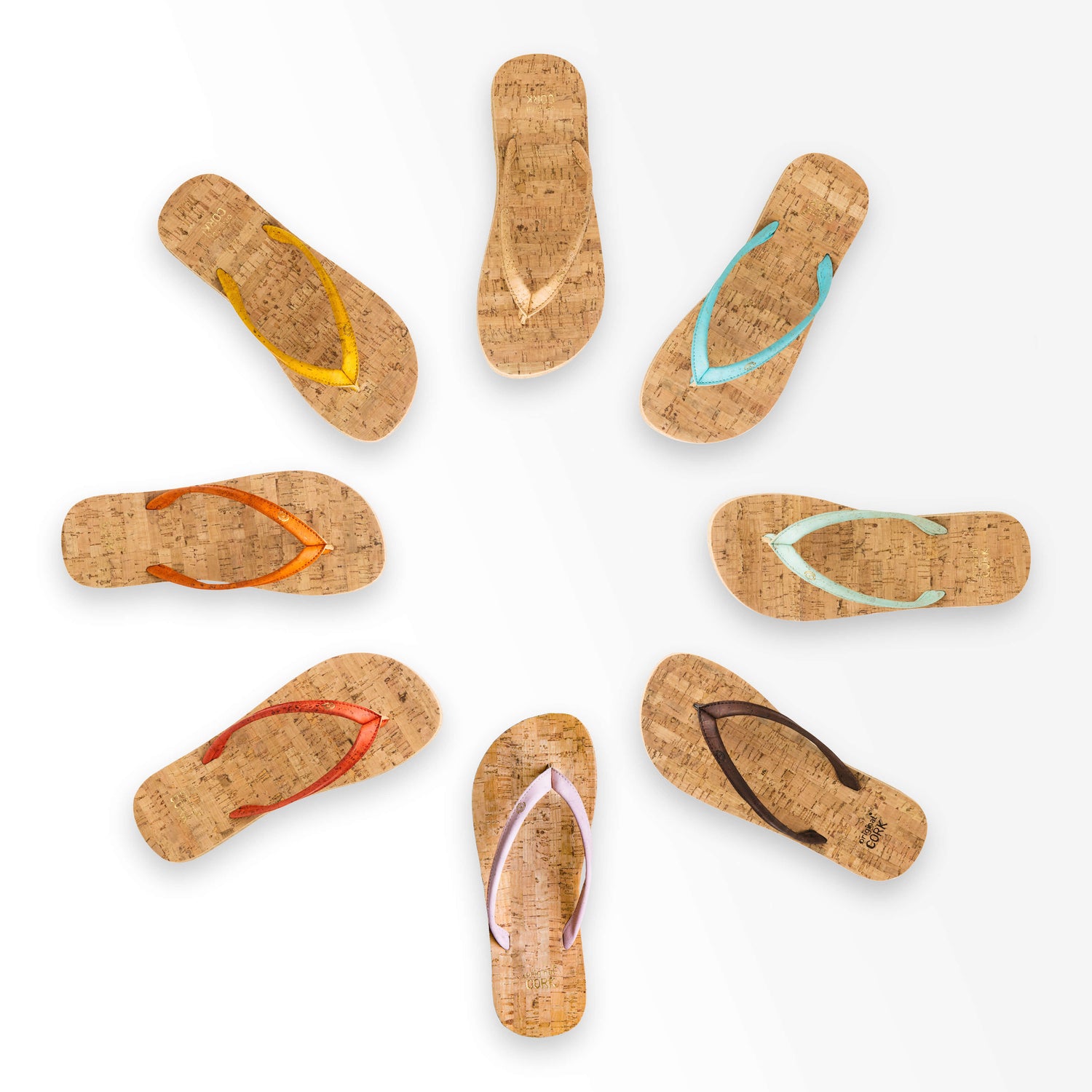Many times we hear talk about ethical and sustainable fashion, but what is sustainable fashion really? Let's dive a little deeper and discuss some contributing factors that help stores and brands embrace ethical and sustainable fashion practices, as well as small steps that we can all take towards creating a closet with intention this year.
Ethical fashion or just jargon?
It's exciting to see that more companies are starting to acknowledge consumer demand for more eco-friendly, ethical, and sustainable options. But, with these terms becoming "buzz-words" that are easy enough to strap on a product label, how is one to know if a company is serious, or just looking to tap into a market niche?
First, I think that "ethical" is definitely seen in tangible action, but I also think that intention counts. How important a role sustainability and ethical production plays in a company's main vision tells a lot, that is, whether it was a central idea behind the conception of the business or brand, or whether it was an afterthought.
In an interview with the Sustainable Fashion Forum, Whitney Bauck, assistant editor at Fashionista.com, was asked about this subject. Her response was, "No company is perfect and the most sustainable option would simply be to not shop. Genuinely ethical brands will almost always acknowledge that, rather than trying to pretend that they’re 100% sustainable. For me personally, 'ethical fashion' refers to apparel or footwear made by brands that are taking whatever measures they can to ensure that people and the planet are being treated well in the process of making their pieces."
We fully agree with her thoughts on this subject. It is true that often the most sustainable option would simply be not to shop, although this would hinder supporting those who are creating new ethical brands or creating new jobs for artisans. We believe that there's always a balance, and that the key is buying new things that are benefiting those who created them, those who are selling them, and those who will be using them, and that do not pollute in their production, use or disposal, and only items that you truly want or need. When possible, we also encourage trading clothing/accessory pieces, shopping second-hand, and repairing what you already have, in order to make use of already produced textiles rather than condemning them to a landfill.
It's not easy to be 100% sustainable as a business, and we know firsthand that there are so many different factors that need to be examined in order to even scratch the surface. Whether it's a discussion of product material and fair worker compensation, shipping logistics and packaging materials, or giving back to charitable organizations, there's a lot to think about at every turn. I agree again with Bauck that "ethical" means making the greatest possible effort to examine every detail and consciously choose the best possible solution at the current time to minimize harm and maximize benefit to the planet, animals, and humans (including the people involved at all levels of production) when making all decisions behind the scenes.
With that said, we support and applaud any and all companies and brands that are making an effort to make decisions that put planet and people before profit. However, we also advise going beyond the surface to read as much information as possible about products. It is always a good idea to read product labels, check what materials are used, and ask questions about where these fabrics came from and who made them. Most brands that are making a true effort to operate in an ethical manner will go into great detail explaining every step of their processes, as this is something that they are (and should be) proud of.
What can I look for when shopping ethical or sustainable fashion?
Sustainable Fashion Materials
I consider sustainable and ethical materials to be those that do not contribute to:
1. Animal cruelty or suffering
2. Exploiting land to cultivate or collect raw materials
3. Polluting territories (including local rivers, lakes, and streams) and harming human/animal health where production takes place.
We promote plant-based (vegan) materials that do not use pesticides/toxic chemicals to grow or involve planting mass amounts of a crop where it does not naturally thrive. We also support those who utilize recycled materials such as plastics, that otherwise would be considered waste, in making new and useful products.
Worker Rights and Health (Fair Trade Fashion)
Who makes the product in question? Is it made by a factory in a country with weak labor laws, or is it made by artisans and artists who are able to sell their work to earn a fair living? Does the product contribute to local pollution where it is made, or does it benefit the people's lives, health, and community? What is the quality, not only of the material in question, but of the person's life who made a fashion piece in question? These are all valid questions to ask when determining whether a product can be considered ethical in terms of trading ethics.
Ethical Fashion Details
I think the more details that a brand or company aims to address in the quest toward sustainability, the more it shows true devotion to be part of the global solution to environmental destruction caused by the fashion industry. With a careful eye with regard to all factors that go into creating a brand or store, there are so many ways that companies can go the extra distance to contribute towards social responsibility.
Creating an Ethical Closet - Inspiration and Intention
What can you do to make steps this year towards revamping your wardrobe with your values in mind?
1. Keep what you really use and take care of it - Be honest with yourself about what you really care about and wear, and what is excess filler just taking up room in your closet. If you have pieces that you haven't used in years, it may be helpful to move them out of your space by donating or selling them so that you can focus on taking care of the pieces that you really do care about.
2. Enjoy the journey - Rather than trying to get rid of all of your old clothes and accessories from before the transition to an ethical wardrobe, slow down and enjoy the process, rather than trying to rush to change everything at once. Keep the old that you use and wear, and bring in new things that are meaningful and will be able to be worn or used for a long period of time. This may mean that it is quality-made to last, or that it is something that can fit your style well enough to use on a constant basis.
3. Balance between new and old - Shopping second-hand and buying new can both play a role in ethical and sustainable shopping. Who benefits from the purchase? How much use will you get from the item? What is it made of? Do you really need it or truly love it, or do you think you might change your mind? These are all things to keep in mind. It's not just about buying new pieces from companies whose values that we share, or keeping clothes out of the waste stream, although these are important aspects of ethical fashion. It's also about taking the time to analyze our purchasing habits, consciously examining what we have, need, and truly want, and taking care of what we have.
- - -
Everything that I've talked about here is important, but it is just the tip of the iceberg. What else does "ethical and sustainable" fashion and shopping mean to you? Let us know below in the comments. Looking forward to making waves in 2019!


